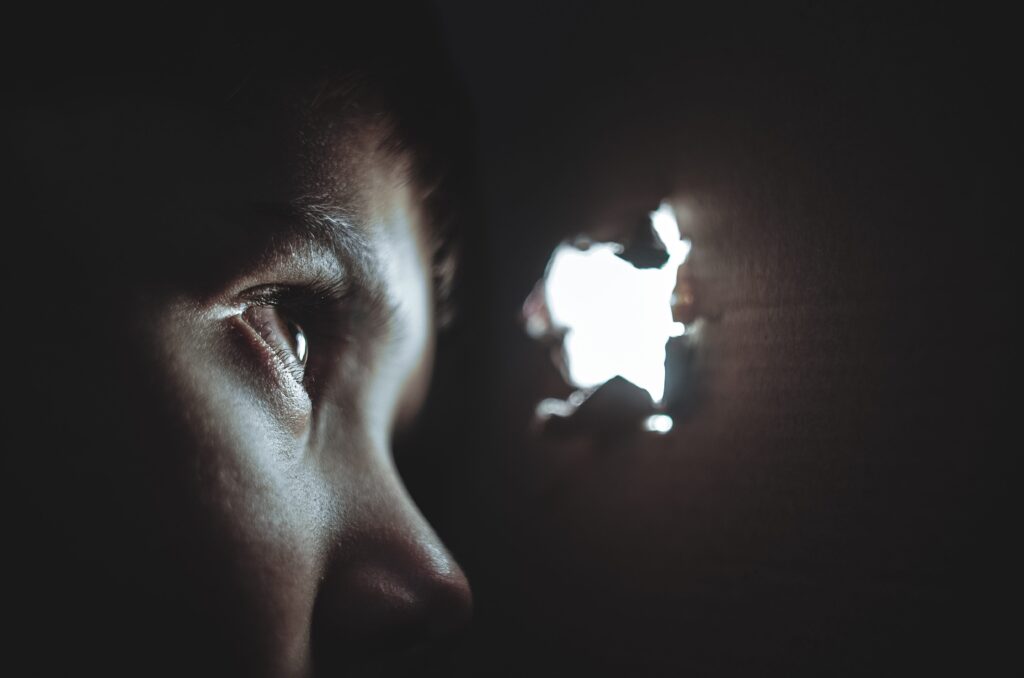Health
15 Signs You Had An Unhappy Childhood: How To Deal With It
Discover 15 behavioural, emotional, and social signs of an unhappy childhood. Learn their impact and start breaking the cycle for a healthier future.

Childhood shapes the foundation of who we are, from our self-esteem to how we connect with others or deal with challenges; early experiences leave a lasting imprint.
Unfortunately, not every childhood is filled with joy, stability, or unconditional love. For some, those formative years are marked by pain, uncertainty, or neglect, which, of course, is an unhappy childhood.
But how does an unhappy childhood manifest in everyday life? What signs do early life experiences still cast a shadow in adulthood? Suppose you’re a parent, educator, or someone trying to better understand yourself or a loved one.
In that case, this comprehensive blog post will shed light on 15 behavioural, emotional, social, and even physical patterns that often point to an unhappy childhood.
What Defines an Unhappy Childhood?
An unhappy childhood doesn’t always mean outright abuse or neglect; it can take many forms. For some, it’s living in a household where emotions are dismissed or invalidated. For others, it’s growing up in an environment overshadowed by constant conflict, financial instability, or absent caregivers.
Emotional neglect, harsh criticism, and unmet emotional needs may also create the conditions for what psychologists deem an unhappy childhood.
It’s important to remember that every child processes trauma differently. While one may learn to internalise pain, others may externalise it. Unhappiness isn’t always loud; sometimes it’s hidden behind silence.
Behavioural Signs of an Unhappy Childhood
Certain behavioural patterns can signal unresolved issues from childhood. These tendencies may be mild in some and pronounced in others. Here are three common patterns to watch for:
- Social Withdrawal: Many who’ve experienced a difficult upbringing may isolate themselves. A lack of trust or fear of rejection can overwhelm connecting with others.
- Aggression or Anger Issues: Childhood unhappiness may lead to difficulties regulating emotions, which can surface as anger or irritability in social or professional settings.
- Low Self-Esteem: Constant childhood criticism or lack of validation often sows seeds of deep self-doubt. Adults may struggle with chronic self-criticism or believe they are “insufficient.”
Emotional Signs You May Spot
Beyond behaviours, emotional red flags can indicate early-life adversity. Here’s what to look out for:
- Chronic Anxiety: Children who grow up in unpredictable or high-stress environments often develop a heightened sense of vigilance that persists into adulthood. They may overanalyse social settings or prepare for worst-case scenarios.
- Persistent Sadness or Depression: Unhappy childhoods can create an underlying emotional void. This unresolved sadness manifests as chronic depression in some individuals.
- Fear of Intimacy: Emotional connections may feel foreign or even dangerous to someone familiar with betrayal, neglect, or abuse during their formative years.
How Unhappiness Impacts Social Relationships
Our ability to connect with others often stems from the lessons we learnt as children. Yet, an unhappy childhood can create barriers to social interactions.
- Difficulty Forming Healthy Relationships: Whether romantic, platonic, or professional, relationships often feel like a minefield. Lack of trust or fear of vulnerability keeps many from forming meaningful connections.
- Tendency Toward People-Pleasing: Constant efforts to earn approval from carers can lead to adulthood fixated on meeting everyone else’s needs, often at their own expense.
- Broken Boundaries: Those with unhappy childhoods may struggle to say “no,” compromising their well-being to avoid conflict or rejection.
Academic and Professional Impact
The ripple effects of an unhappy childhood often extend into academic or workplace settings.
- Struggles with Focus or Performance: Whether due to trauma, unstable home environments, or emotional distress, many carry impaired concentration into adulthood. This can impact success in school and at work.
- Fear of Failure or Overachieving: Early neglect or criticism may create adults who constantly strive for perfection to gain validation—or avoid challenges for fear of falling short.
Physical Manifestations
Trauma and emotional neglect don’t remain internal. The body often reflects the stress of an unhappy childhood through chronic issues or unhealthy coping mechanisms.
- Chronic Health Issues: Stress-related conditions like migraines, insomnia, or digestive problems may stem from an unresolved emotional toll.
- Substance Use or Eating Disorders: Some cope with unresolved pain through overindulgence—turning to alcohol, drugs, or disordered eating as a means of self-soothing.
- Struggles with Body Image: Negative self-worth learnt in childhood can shape an unhealthy relationship with one’s body, manifesting as shame or obsessive control.
Coping Mechanisms Born from Pain
For many, the survival techniques developed during a difficult childhood persist into adulthood. These include:
- Avoidance: Escaping or shutting down emotionally in the face of challenges.
- Overachieving: channelling hurt into productivity, often to the point of burnout.
- Projection: Redirecting feelings of inadequacy or stress onto others, intentionally or unintentionally.
Recognising these habits is the first step toward breaking free.
Breaking the Cycle as Parents and Educators
Parents and educators can rewrite this narrative, ensuring children today don’t inherit the same patterns of unhappiness. Here’s how to break the cycle:
- Validate Their Feelings: Actively listen and acknowledge children’s emotions, even minor ones.
- Use Positive Reinforcement: Praise effort as much as achievements to foster confidence.
- Provide Consistency: A stable environment helps children feel secure.
- Model Healthy Behaviour: Demonstrate proper emotional regulation and boundary-setting.
When to Seek Help
It’s okay to ask for guidance. Therapists and counsellors can help individuals untangle the web of past hurts, creating room for healing. Family, friends, and support groups also play essential roles.
If you believe your childhood experiences—or those of someone you know—require professional attention, reach out to mental health experts. The earlier, the better.
Real-Life Stories of Transformation
Individuals who’ve navigated the challenges of an unhappy childhood often say that healing is a lifelong process but one worth pursuing. For example:
- Anna, 38: “Therapy taught me that my self-worth wasn’t tied to validation from others. It was so freeing to finally believe I deserved love for who I am.”
- Chris, 27: “Acknowledging the unhealthy coping habits I had, like avoiding intimacy, helped me form real, lasting friendships.”
These stories remind us that resilience is possible and that we can break out of old cycles.
Hope for a Brighter Future
An unhappy childhood does not define your destiny. By recognising these signs, providing support, and seeking help, we can create opportunities for growth, healing, and happiness.
JOIN THE CONVERSATION→ Telegram | X/Twitter | Facebook | WhatsApp|WhatsApp Channel|Mobile App|Instagram
Whether you’re a parent, educator, or someone trying to make sense of your past, remember this—there are always pathways to a better tomorrow. Keep going. Seek guidance. And most importantly, don’t lose hope.















